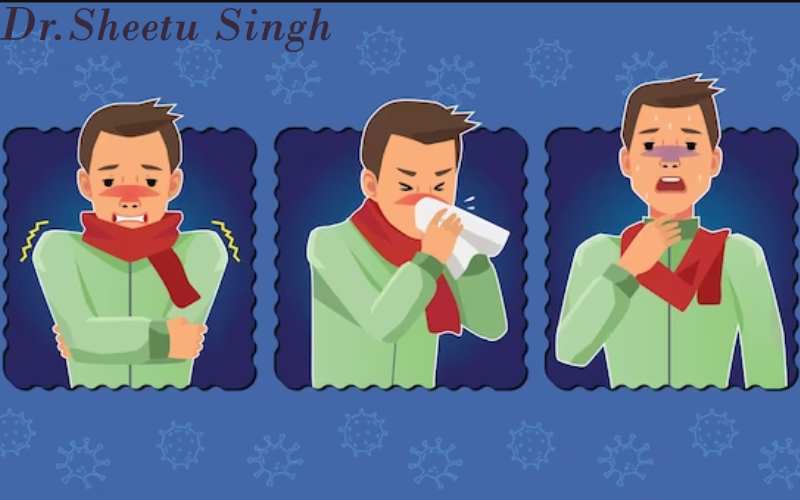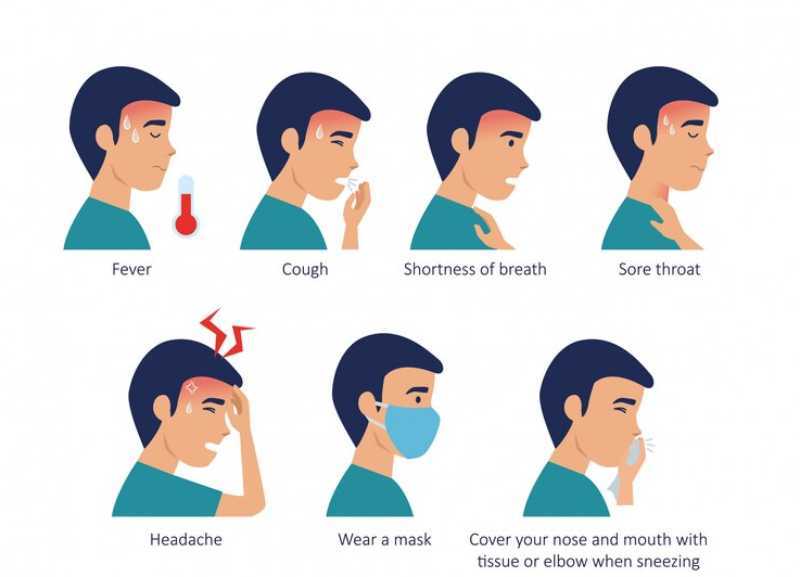A sore throat is a common ailment often caused by viral infections like the common flu or cold or occasionally by bacterial infections such as Streptococcus. The majority of sore throats are minor and go away on their own in a couple of days. However, it’s critical to be on the lookout for indications that your sore throat can be a sign of a more serious infection. If your sore throat is accompanied by high fever, difficulty breathing or swallowing, persistent pain for more than a week or the appearance of white patches on the back of your throat, it’s crucial to consult a healthcare professional, consulting with Dr. Sheetu Singh is a prudent step towards finding relief and maintaining your overall health.
Sore throats are common in kids. It might be challenging to determine if your child has a sore throat that will go away on its own or one brought on by a more serious infection. These symptoms could indicate strep throat tonsillitis, infection or other bacterial infections that may require Antibiotics for treatment. Additionally, it’s advisable to get medical treatment right away if you have a weakened immune system or underlying medical issues as you may be more vulnerable to infections with a higher propensity for severity. Here’s some common infection information that may include a sore throat.
- The Common Cold
A viral illness like the common cold is the main cause of sore throats. These illnesses are more prevalent in the winter, but they can occur at any time. In addition to a scratchy throat and sore, a cold virus can cause your child to have a runny nose, fever and cough. A virus-induced sore throat won’t go better with antibiotics. Usually, these infections resolve in 7–10 days without medication. The best method to treat a cold and sore throat in a child is to keep them as comfortable as possible, ensure they drink lots of fluids and give them plenty of rest.
- Hand, Foot and Mouth Disease
Foot, hand and mouth disease is caused by a family of viruses called Enteroviruses. This infection most often spreads among young children during summer and fall, although cases may occur year-round. Early signs may include a fever, sore throat or mouthache, then a rash that looks like a mix of tiny red bumps and blisters, especially on the hands, feet, buttocks and around the mouth. Blisters and sores may form in the throat and mouth making it painful to swallow. As with other viruses, Antibiotics will not help this type of sore throat. Dr. Sheetu Singh may recommend Acetaminophen or Ibuprofen for the fever and pain, along with fluids and rest at home until the blister is healed.
- Strep Throat
An infection known as Strep Throat is brought on by the bacteria Streptococcus Pyogene. It’s most commonly seen among children 5 to 15 years old, usually during early spring and winter. Only 20% to 30% of throat infections in school-age children are caused by strep throat. Symptoms include pus on the tonsils, sore throat, fever, difficulty swallowing and swollen glands. Children may also complain of stomachaches, headaches and may develop a red, shaper-like rash on their bodies. A runny nose or cough nose are not typical symptoms of sore throat among older children. Strep throat is extremely uncommon in toddlers and infants.
Why is it Important to Know the Difference?
Children’s sore throats are typically brought on by viral infections, which do not respond to medications and heal on their own. Children with strep throat also may recover without Antibiotics. However, antibiotics can speed up recovery time, lower the risk of developing certain complications from strep throat and reduce contagiousness. One of the most crucial complications to prevent is acute rheumatic fever, a condition that can harm the heart and joints. Antibiotics are important for treating bacterial infections like strep throat but have their risks including yeast infections, diarrhea, the development of antibiotic resistance and allergic reactions.
Sore Throat: Diagnosis & Treatment
After evaluating your child and clearing out a bacterial infection, your pediatrician can identify a sore throat brought on by a virus. The best way to care for a sore throat caused by a virus is to keep your kid comfortable and make sure they rest and get plenty of fluids. Dr. Sheetu Singh may recommend Ibuprofen or Acetaminophen to relieve the pain and fever. For foot, hand and mouth disease, which is highly contagious your child should stay home until the blisters begin to heal.
Preventing Illnesses That Cause Sore Throat
The bacteria and viruses that cause a sore throat are passed from individual to individual through the hands of someone who is infected or droplets of moisture in the air. The illnesses may spread through childcare centers and schools. The fact that people are frequently most contagious before they even start to exhibit symptoms makes preventive difficult. Covering sneezes and cough with a tissue or upper arm, washing hands, cleaning toys and not sharing drinking cups is the best way to try to prevent the spread of illness.


